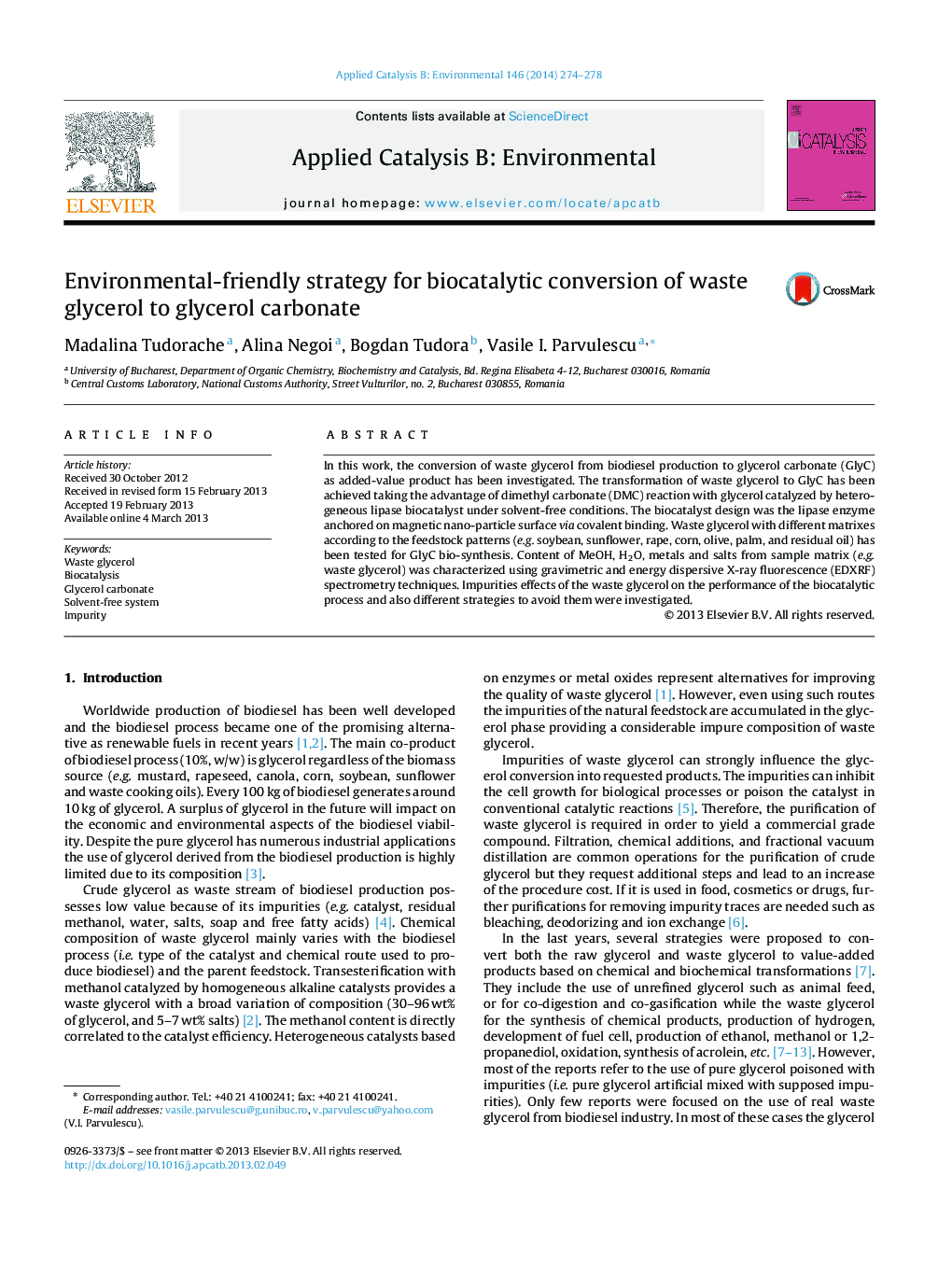| کد مقاله | کد نشریه | سال انتشار | مقاله انگلیسی | نسخه تمام متن |
|---|---|---|---|---|
| 45208 | 46405 | 2014 | 5 صفحه PDF | دانلود رایگان |

In this work, the conversion of waste glycerol from biodiesel production to glycerol carbonate (GlyC) as added-value product has been investigated. The transformation of waste glycerol to GlyC has been achieved taking the advantage of dimethyl carbonate (DMC) reaction with glycerol catalyzed by heterogeneous lipase biocatalyst under solvent-free conditions. The biocatalyst design was the lipase enzyme anchored on magnetic nano-particle surface via covalent binding. Waste glycerol with different matrixes according to the feedstock patterns (e.g. soybean, sunflower, rape, corn, olive, palm, and residual oil) has been tested for GlyC bio-synthesis. Content of MeOH, H2O, metals and salts from sample matrix (e.g. waste glycerol) was characterized using gravimetric and energy dispersive X-ray fluorescence (EDXRF) spectrometry techniques. Impurities effects of the waste glycerol on the performance of the biocatalytic process and also different strategies to avoid them were investigated.
Figure optionsDownload as PowerPoint slideHighlights
► Waste glycerol from biodiesel production was converted to glycerol carbonate (GlyC).
► GlyC synthesis has been developed based on biocatalytic process.
► Waste glycerol with different matrices was used as raw material for GlyC synthesis.
► Effects of the waste glycerol impurities on the GlyC synthesis were evaluated.
► Strategies for waste glycerol pre-treatment were investigated.
Journal: Applied Catalysis B: Environmental - Volume 146, March 2014, Pages 274–278